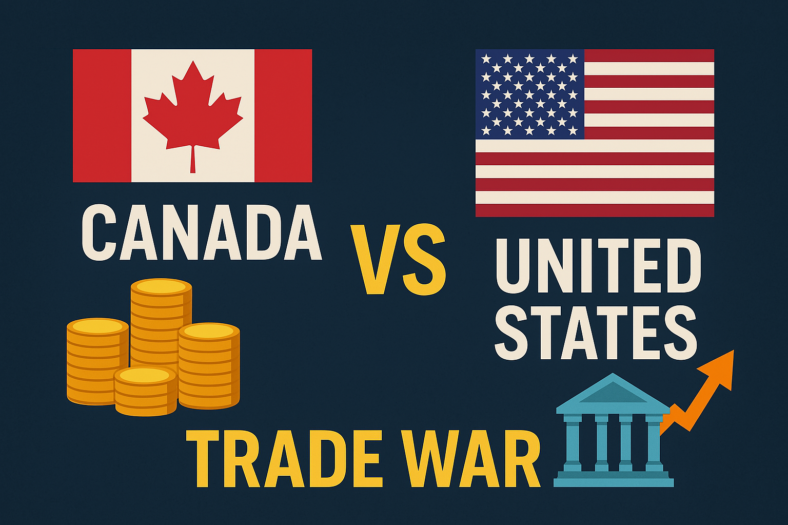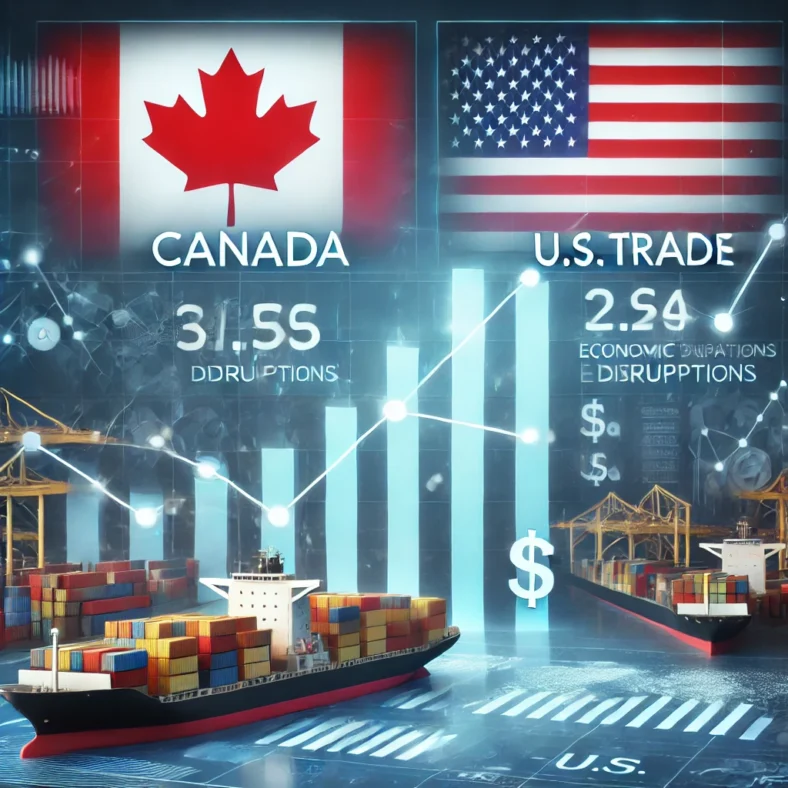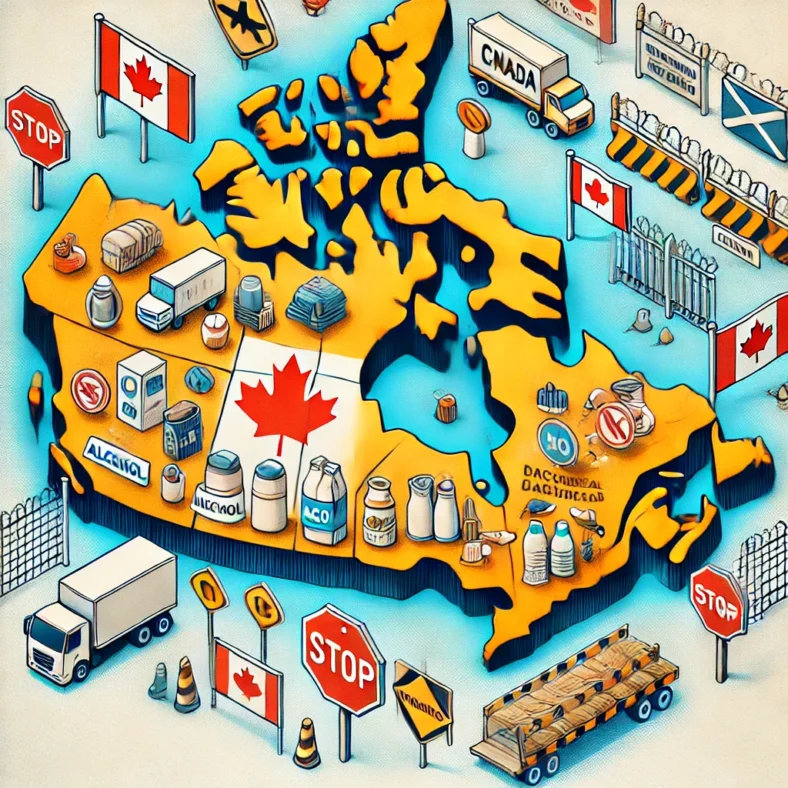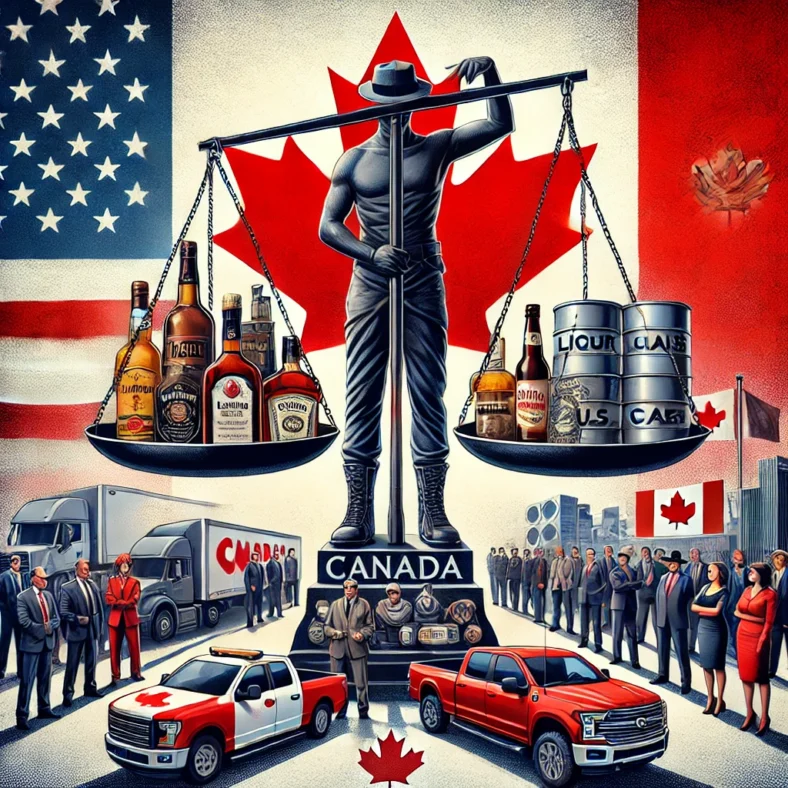The United States and Canada have one of the closest economic relationships in the world. Given this deep connection, when the U.S. economy experiences a downturn, many Canadians wonder: Will Canada go into a recession too? While a U.S. recession doesn’t guarantee that Canada will also enter one, the risks are significantly high due to various economic factors.
How a U.S. Recession Impacts Canada
1. Trade Dependency
Canada’s economy is heavily reliant on trade with the U.S., which accounts for nearly 75% of Canadian exports. If the U.S. enters a recession, demand for Canadian goods and services could decline, negatively affecting industries like manufacturing, natural resources, and technology. Less demand for exports means lower revenues for Canadian businesses and potential job losses.
2. Reduced Business and Consumer Confidence
A U.S. recession would likely shake global financial markets, including Canada’s. Investors may pull back, leading to stock market volatility and reduced business investments. Additionally, Canadian consumers may spend less due to fears of job losses and economic instability, further slowing economic growth.
3. Commodities and the Energy Sector
Canada is a major exporter of oil, natural gas, and raw materials, industries that depend on stable demand from the U.S. If a U.S. recession leads to a decline in energy consumption and commodity prices, provinces like Alberta, Saskatchewan, and Newfoundland & Labrador could be hit hard, leading to job losses and reduced government revenues.
4. Interest Rates and Monetary Policy
If the U.S. Federal Reserve cuts interest rates to stimulate its economy, the Bank of Canada (BoC) may follow suit to maintain financial stability and keep the Canadian dollar competitive. Lower interest rates could help borrowers but may not be enough to prevent an economic downturn if businesses and consumers lose confidence.
5. Financial Market Volatility
A recession in the U.S. would likely lead to a drop in stock markets worldwide. Since many Canadian retirement savings and investment portfolios are tied to both Canadian and U.S. equities, a market downturn could hurt investors’ wealth, leading to lower spending and slower economic growth.
Will Canada Definitely Enter a Recession If the U.S. Does?
Not necessarily. Canada could avoid a full recession if:
- Domestic demand remains strong, helping to counteract the slowdown from weaker exports.
- The Bank of Canada implements effective monetary policies to keep the economy stable.
- The U.S. recession is mild or short-lived, reducing long-term economic damage.
However, given Canada’s deep economic ties to the U.S., a severe and prolonged U.S. recession would likely drag Canada into one as well.
How Canadians Can Prepare
While economic downturns are unpredictable, here are a few steps Canadians can take to protect themselves:
- Build an emergency fund to cover expenses in case of job loss.
- Diversify investments to reduce exposure to market downturns.
- Reduce debt to avoid financial stress if interest rates change.
- Stay informed about economic trends to make well-informed financial decisions.
Final Thoughts
A U.S. recession poses a significant risk to the Canadian economy due to trade, investment ties, and market dependencies. While Canada may not always follow the U.S. into a recession, the likelihood increases if the downturn is deep and prolonged. By understanding these risks and preparing financially, Canadians can better navigate uncertain economic times.
Stay updated on economic trends and financial news at Ratesheet.ca.




















